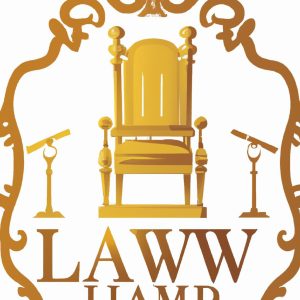In the world of estate planning, understanding the difference between a revocable and an irrevocable trust is crucial. As experienced professionals in the field of law, particularly in the areas of estate planning and trusts, Morgan Legal Group, based in New York City, delves into the intricacies of these two types of trusts. It is essential to comprehend the nuances between a revocable and an irrevocable trust in order to create a comprehensive estate plan that aligns with individual goals and objectives. In this article, we will explore the differences between these two trust structures to provide clarity for those navigating the realm of estate planning.
Revocable Trusts: Understanding Flexibility and Control
A revocable trust, also known as a living trust, is a type of trust that can be altered, amended, or revoked by the trust creator (grantor) during their lifetime. This flexibility is beneficial for individuals who want to maintain control over their assets and make changes as their circumstances evolve. With a revocable trust, the grantor can add or remove assets, change beneficiaries, and designate successor trustees at any time. This level of control provides peace of mind and allows for adjustments to be made based on changing needs or preferences.
On the other hand, an irrevocable trust cannot be changed or revoked once it is created, except under very limited circumstances. While irrevocable trusts offer certain tax advantages and asset protection benefits, they lack the flexibility of revocable trusts. Once assets are transferred into an irrevocable trust, they are no longer considered the property of the grantor and are instead owned by the trust itself. This loss of control may be a drawback for individuals who prefer the ability to make changes to their trust as needed. Ultimately, the choice between a revocable and irrevocable trust depends on the specific goals and preferences of the trust creator.
Irrevocable Trusts: Exploring Long-Term Asset Protection
An irrevocable trust refers to a type of trust that cannot be changed or revoked once it is established. This means that once assets are transferred into the trust, they are no longer considered the property of the grantor. The terms of the trust are set in stone and cannot be altered in any way without the consent of the beneficiaries. Irrevocable trusts are commonly used for long-term asset protection and estate planning purposes.
On the other hand, a revocable trust allows the grantor to make changes to the trust at any time during their lifetime. The grantor retains control over the assets in the trust and can amend or revoke the trust as they see fit. While revocable trusts offer more flexibility, they do not provide the same level of asset protection as irrevocable trusts. It is important to carefully consider your goals and needs when choosing between a revocable and an irrevocable trust.
Key Differences in Tax Implications between Revocable and Irrevocable Trusts
One of the key differences between revocable and irrevocable trusts is the tax implications. With a revocable trust, the grantor is still considered the owner of the assets and therefore, any income generated from the trust is taxed as personal income. On the other hand, with an irrevocable trust, the trust itself is considered the owner of the assets and any income generated is taxed at the trust level, which may result in lower tax rates.
Additionally, assets in a revocable trust are still subject to estate taxes upon the grantor’s death, while assets in an irrevocable trust are not. This can be a significant advantage for individuals with large estates.
In conclusion, understanding the differences between a revocable and an irrevocable trust is crucial in creating a comprehensive estate plan. While a revocable trust offers more flexibility, an irrevocable trust provides long-term asset protection and potential tax advantages. It is important to carefully consider your goals and needs when deciding which type of trust is right for you. Consult with a trusted legal professional to determine the best course of action for your individual situation.Understanding the differences between revocable and irrevocable trusts is crucial when it comes to estate planning. Not only do these trusts offer valuable benefits, but they also have different tax implications that must be considered. In this article, we will explore the key differences in tax implications between these two types of trusts and provide strategic considerations for choosing the right one for your specific needs.
Revocable Trusts: Flexibility and Control
A revocable trust, also known as a living trust, can be altered or revoked by the grantor during their lifetime. This means that the assets held in the trust are still considered part of the grantor’s estate for tax purposes, offering no immediate tax benefits. While this type of trust allows for flexibility and control over assets, it does not provide protection from creditors or potential tax advantages.
Irrevocable Trusts: Asset Protection and Tax Advantages
On the other hand, an irrevocable trust cannot be modified once it is established, providing asset protection and potential tax advantages. Assets transferred to an irrevocable trust are no longer owned by the grantor and are therefore not included in their estate for tax purposes. This can result in significant tax savings for beneficiaries of an irrevocable trust. Additionally, income generated by assets in an irrevocable trust may be taxed at a lower rate, further benefiting the trust beneficiaries.
Estate Taxes: A Key Difference
One key difference in tax implications between revocable and irrevocable trusts is the treatment of estate taxes. Assets held in a revocable trust are subject to estate taxes upon the grantor’s death, as they are still considered part of the estate. In contrast, assets transferred to an irrevocable trust are not included in the grantor’s estate and may not be subject to estate taxes. This can result in significant tax savings for beneficiaries of an irrevocable trust.
Strategic Considerations for Choosing Between Revocable and Irrevocable Trusts
When considering whether to choose a revocable or an irrevocable trust, there are several strategic considerations to take into account. One key difference between the two types of trusts is the level of control the creator maintains over the trust assets. In a revocable trust, the creator has the ability to make changes to the trust or revoke it entirely at any time. On the other hand, an irrevocable trust cannot be changed or revoked once it is established.
Another important consideration is the impact on taxes and asset protection. Assets in a revocable trust are still considered part of the creator’s estate for tax purposes and may not provide the same level of protection from creditors as assets in an irrevocable trust. However, irrevocable trusts can have more favorable tax treatment and may offer enhanced protection of assets from potential lawsuits or creditors. It is crucial to carefully weigh these factors and consult with a knowledgeable estate planning attorney to determine which type of trust best aligns with your specific goals and needs.
Q&A
Q: What is the difference between a revocable and an irrevocable trust?
A: A revocable trust can be changed or dissolved by the grantor during their lifetime, while an irrevocable trust cannot be modified once it is created.
Q: What are some benefits of a revocable trust?
A: A revocable trust allows for flexibility and control over assets, as well as the ability to avoid probate upon the grantor’s death.
Q: How does an irrevocable trust differ in terms of control?
A: An irrevocable trust transfers ownership and control of assets to the trust itself, thus providing protection from creditors and potential tax benefits.
Q: Are there any drawbacks to each type of trust?
A: One potential drawback of a revocable trust is that assets are not fully protected from creditors, while an irrevocable trust limits the grantor’s ability to make changes to the trust.
Q: How does each type of trust affect estate taxes?
A: Assets held in a revocable trust are still considered part of the grantor’s estate for tax purposes, whereas assets in an irrevocable trust may be excluded from the estate, reducing potential estate taxes.
Conclusion
In conclusion, understanding the distinction between a revocable and an irrevocable trust is crucial when making decisions about estate planning and asset protection. While both types of trusts offer valuable benefits, it is important to carefully consider the specific needs and goals of your estate plan before choosing which type of trust is right for you. Consult with a trusted legal advisor to ensure that your assets are protected and distributed according to your wishes. By taking the time to educate yourself on the differences between these two types of trusts, you can rest assured that your estate plan is well-equipped to meet your needs now and in the future.
 What is the difference between a revocable and an irrevocable trust?
What is the difference between a revocable and an irrevocable trust?
When it comes to estate planning, trusts are a popular tool used to transfer assets, protect wealth, and provide for beneficiaries. There are various types of trusts available, each with its own set of rules and benefits. Two common types of trusts that you may come across are revocable trusts and irrevocable trusts. While they may sound similar, there are distinct differences between the two. In this article, we will dive into the key differences between a revocable and an irrevocable trust, and help you determine which one may be the right fit for your estate planning needs.
Revocable Trust
As the name suggests, a revocable trust is one that can be altered, amended, or revoked by the grantor (the person who creates the trust) during their lifetime. In simple terms, the grantor maintains control over the trust assets and can change the terms of the trust at any time, for any reason. Revocable trusts are also known as “living trusts” as they are created while the grantor is alive.
One of the main advantages of a revocable trust is its flexibility. Since the grantor can make changes to the trust, it can adapt to their changing needs and circumstances. They can add or remove beneficiaries, change the distribution of assets, or even terminate the trust if they wish to do so. Additionally, assets held in a revocable trust are still considered part of the grantor’s estate, so they are subject to estate taxes upon their death.
Another benefit of a revocable trust is that it can help avoid the probate process. Probate is the legal process of administering a deceased person’s estate and can be a lengthy and expensive process. With a revocable trust, assets can be distributed to beneficiaries without going through probate, which can save time and money.
However, there are some downsides to consider when it comes to revocable trusts. Since the grantor maintains control over the trust, the assets are not protected from creditors or lawsuits. In the event of a lawsuit, the assets held in a revocable trust can be accessed by creditors. Additionally, revocable trusts do not offer any tax benefits since the grantor retains control over the assets.
Irrevocable Trust
An irrevocable trust, on the other hand, is a trust that cannot be altered, amended, or revoked by the grantor once it is established. The grantor transfers ownership of assets into the trust, giving up all control and ownership rights. Due to this relinquishment of control, it is crucial for the grantor to carefully consider the assets they transfer into an irrevocable trust as they cannot be accessed or changed in the future.
One of the main benefits of an irrevocable trust is asset protection. Since the grantor no longer owns the assets, they are shielded from creditors and lawsuits. This can be particularly beneficial for individuals who have a high net worth or are at risk of being sued. Additionally, assets held in an irrevocable trust are not considered part of the grantor’s estate, which means they are not subject to estate taxes upon their death.
Another advantage of an irrevocable trust is that it offers tax benefits. Since the assets are no longer owned by the grantor, they are not considered taxable income for them. This can be particularly beneficial for high-income earners who may be looking for ways to reduce their taxable income.
However, the biggest downside to an irrevocable trust is its lack of flexibility. Once assets are transferred into the trust, they cannot be changed or removed. This means that the grantor may lose the ability to access those assets in case of an emergency or change their distribution wishes. Additionally, the grantor must have complete faith and trust in the trustee (the person in charge of managing the trust) since they have no control over the trust assets.
Which one is right for you?
Now that we have looked at the key differences between a revocable and an irrevocable trust, you may be wondering which one is right for your estate planning needs. The answer depends on your specific goals and circumstances. If you are looking for flexibility and control over your assets, a revocable trust may be the right choice for you. On the other hand, if asset protection and tax benefits are your main concerns, then an irrevocable trust may be a better option.
It is crucial to consult with an experienced estate planning attorney to determine which type of trust best suits your needs. They can help evaluate your assets, goals, and personal circumstances to guide you towards the right decision.
In Conclusion
In summary, revocable trusts and irrevocable trusts are two commonly used tools in estate planning with distinct differences. Revocable trusts offer flexibility and control, while irrevocable trusts offer asset protection and tax benefits. Both have their own set of advantages and disadvantages, and it is essential to consider your unique needs and goals before deciding which one is the right fit for you. Consult with an estate planning attorney to explore your options and make an informed decision.






